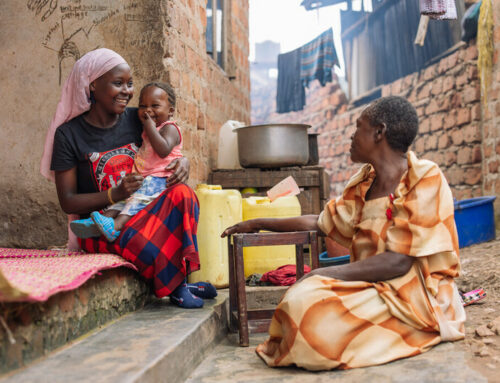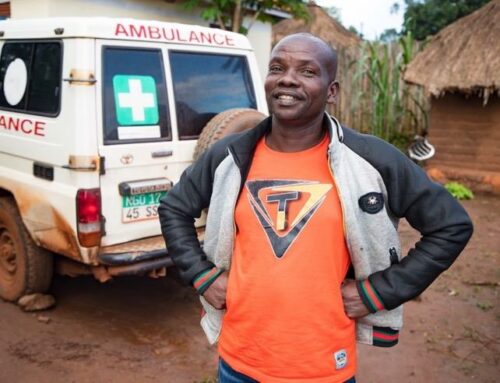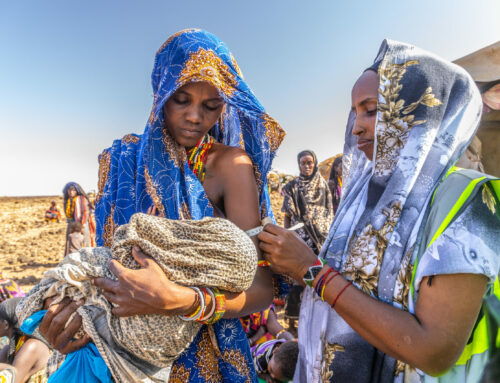Koota Injena: Investing in Girls’ Education to Fight FGM and Child Marriage
This story is part of our Koota Injena series. Through our activity called Koota Injena (“Come let us talk” in the Borana language), which is funded by USAID, we are engaging communities in Samburu and Marsabit Counties in Kenya through intergenerational dialogues to collectively abandon FGM and child marriage. We train “champions” in the community to hold open discussions and help their peers, family and friends re-envision how girls are treated, why their rights should be respected and why they should finish their education. One of the innovative approaches of Koota Injena is engaging with clan elders, who make decisions for the rest of the community. This approach is working. In just one year, we reached 99 high level clan elders, all of whom have changed their hearts and minds about FGM and child marriage.
In Samburu County Kenya, 90% of women have undergone female genital mutilation (FGM) and 38% were married before they were 18 years old. This is because the Samburu tribe – nomadic pastoralists whose way of life revolves around their cattle – traditionally practice both FGM and child marriage.
The two practices are linked. When a girl (typically between 8-15 years old) undergoes FGM, she is considered ready to be married off, often to a much older man. Girls are also expected to drop out of school once they are married, which is reflected in the low enrollment rates for girls in secondary school in Samburu County.
To further protect girls in Samburu County, we established a scholarship program through Koota Injena to send girls at risk to FGM and child marriage to secondary school and provide them with training on advocacy skills to become anti-FGM ambassadors. Studies show that out of school youth face an increased risk to harmful practices like FGM and child marriage. Secondary school is not compulsory in Kenya and requires school fees which many families cannot afford, leaving girls without an opportunity to attend school.
Thanks to our donors, we’ve been able to reach girls like 15-year-old Saloni. “I think all girls should go to school,” Saloni said to us when we met her. Unfortunately for Saloni, her family could not keep up with her school fees. Saloni is the third child in a family of six children, supported solely by Saloni’s mother – a domestic helper for a wealthy family. “My mom struggled a lot to send me to secondary school even though I wanted to,” she said.
Saloni has been enrolled at Wamba Girls Secondary School, where she boards and was given a “dignity kit” – a backpack filled with essentials such as sanitary pads, towels, soap, and bedding. Through the scholarship, Saloni also receives life skills training, reproductive health education and training on convincing her family and peers to give up FGM.
When asked about how she feels now that she’s in school, Saloni said, “I’m happy to be here in school My favorite subject is biology. One day, I hope to go to University and become a doctor.”
We asked Saloni what she would like to say to girls around the world that are her age. Saloni said, “I encourage all girls to finish school, to not agree to undergo FGM or to be married young. I would like to say to elders who continue these practices to stop encouraging the cut because it is not good for girls. I learned a lot about FGM from Amref Health Africa. We saw what happens to girls.”




